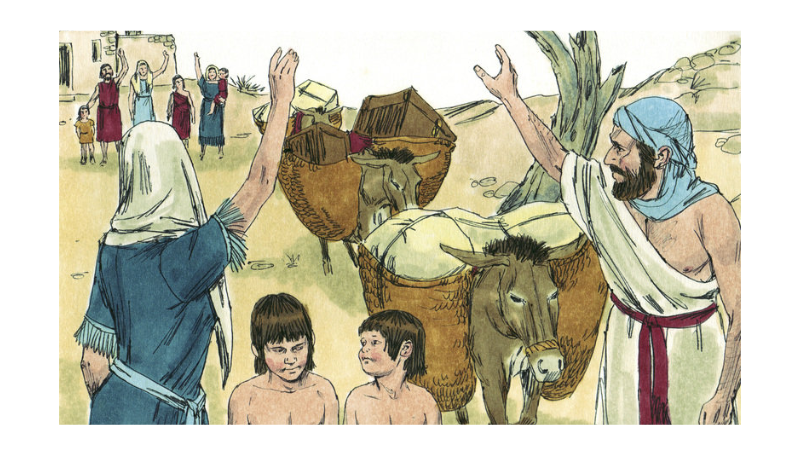Leon Kass and Hannah Mandelbaum
Jewish Review of Books, May 11, 2021
“… her words bespeak a profound desire—and capacity—for loyal and devoted friendship, that lifelong being-together of souls that, as much as is possible and beyond any mere concourse of bodies, can overcome the isolation and separation of human beings.”
The recently widowed Ruth will not be dissuaded from her decision to follow her mother-in-law to Bethlehem. In answer to Naomi’s final plea that she stay with her people and her gods in Moab, Ruth utters the magnificent words of love and loyalty for which she—and the entire book—are justly famous.
And Ruth said: “Entreat me not to leave you, and to return (lashuv) from following after you; for wherever you go, I will go (telkhi ’elekh); and where you lodge (talini; from lun), I will lodge; your people (‘am) shall be my people, and your god(s) (’elohim) my god(s); where you die, I will die, and there will I be buried; the LORDdo so to me, and more also, if anything but death part you and me.” (1:16–17)
For generations upon generations of readers, ourselves included, Ruth’s speech stands as the perfect expression of loving and devoted friendship. Her words, no matter how often we hear them, send our souls soaring. We fall in love with Ruth’s nobility, her wholeheartedness, her courage, her resolve, and her simple eloquence. Yet the speech, grand though it is, does not stand alone. It exists in a larger context to which it must be related and against which its significance must finally be judged. Occurring merely three-fourths of the way through the first of the book’s four chapters, it presents the book’s first word on love and friendship but hardly its last. We do it no harm if we slow down, analyze its contents, and see how it fits with what came before and what comes next.
The big picture is clear: Ruth insists on being allowed to stay with Naomi. She is not afraid to abandon her home and her Moabite gods. She is not deterred by thoughts of being a despised alien in Israel or by the burdens of becoming a follower of Israel’s God. And, as her answer makes clear, she is definitely not put off by the idea—emphasized again and again by Naomi—that she may never marry again. Having earlier joined herself to Naomi’s son, Ruth now “espouses” herself to Naomi: to cleave to her wherever she goes, wherever she lodges, wherever she abides. Speaking not as a daughter-in-law or even as a daughter but as a “bride,” she will live and die attached to Naomi, and therefore also to Naomi’s people and even to Naomi’s god(s). Also like a spouse, she will be buried at her side. And when Ruth solemnly invokes (for the first time) the Lord God of Israel (not the ’elohim of Moab), it is not in the expression of reverence or in prayer for a blessing. She invokes Him only to call down His punishment on her—misery like yours, Naomi, and more so—should she allow anything but death to separate them. … [To read the full article, click here]


